|
After 8+ years of helping people organize their homes, you can bet I’ve seen it all. One of the things I love most about being a professional organizer is that every project is different, with varied homes and unique clients.
While each client has a specific reason for needing my help — just moved in, about to move, busy family life, inheritance, downsizing, new baby, and more — I’ve noticed some organizing errors that crop up in just about every home.
0 Comments
I have a confession: For the past 6 years, I’ve rented a storage unit. OK, technically I didn’t rent it, my husband did. His original impetus was good. He’s an artist and he had work coming back from a show, but no space in his studio because hline was busy making new work. So he thought he’d get a small storage unit for a few months until he could move the art to another gallery. Months turned into a year, then two, then six. The art market shifted — and a worldwide pandemic shut down the gallery scene — and the shows he hoped to get didn’t happen. But the storage rental continued. This is how it happens with storage units. We think it’s a short-term place to stash some extra stuff, but since the bills are paid automatically and it’s out of sight, it’s too easy to forget about what we squirreled away. Watch my podcast episode:HOW BIG IS THE PROBLEM?
If you see yourself in my situation, know that you’re not alone. There are over 51,000 storage facilities in the US. That’s more facilities (not individual storage units) than McDonalds and Dunkin Donuts combined. “How long will it take for me to get organized?” As a Certified Professional Organizer®, I get this question a lot.
Remember, your home didn’t get disorganized in one day, and it’s not going to get fixed in one day! How long your organizing project will take depends on 4 factors. 1. HOW QUICKLY DO YOU MAKE DECISIONS? If you need to reminisce and tell the story of each item before deciding whether or not to keep it or where to put it, the organizing process is going to go pretty slowly. If, on the other hand, you set some pre-decision guidelines, your project will pick up speed. You know you need to let go of excess stuff. You even read my 3 Sticking Points blog and now you want to let it go. But actually getting rid of it seems overwhelming and you just can’t bring yourself to do it. I know that feeling! Before I was a professional organizer, I was a milliner (a hat maker). Immersing myself in the world of millinery design, I had amassed quite a collection of wooden hat blocks, the molds on which I formed hats by hand. I scoured thrift shops, scrolled eBay, and searched for block makers around the world to build my collection. This fall — after not working as a professional milliner for over a decade — I made up my mind to reduce my collection, keeping only as many as I need to fuel my hobby. In my last blog, I outlined the 3 Sticking Points — Emotional, Practical, and Financial — that hold us back from detaching from our excess stuff. These hat blocks hit all three sticking points for me! But after confronting the reasons for holding on, I faced another hurdle: How do I actually get rid of them? Once you find your sticking points, you need a KEY to unlock the clutter! The Keys to Unlock Your Clutter
= The actions you take to address your Sticking Points (emotional, practical, and financial) and let the clutter go. This September, I realized it was time. Past time, really.
I eyed the three long shelves stretching across the back wall of my craft room, piled with over 60 hat blocks I had collected in my previous profession as a milliner. These blocks had been the tools of my trade. Hand-stretching a felt or straw over each wooden form makes a unique hat. Some blocks were antiques I’d scored on eBay or thrift shops and others I’d watched being hand-carved by an artisan in Florence. “I’m a professional organizer now,” I told myself. I make myself a hat every now and then, but I have no desire to be a professional milliner again. So why was I having such a hard time letting go of these hat blocks? Check out the recent Redfin article I was featured in: Organizing Mistakes: 27 Slip-Ups to Avoid During Your Next Project | Redfin
Organizing is difficult and can be a stressful, time-consuming project. It’s also an essential skill that can increase your physical and emotional health. Chances are, though, that during an organizing project, you made a few mistakes. While it's natural to feel disappointed or frustrated when mistakes occur, it's important to recognize them as valuable learning opportunities rather than failures. So, whether you live in a house in Brentwood, CA, or a Greenville, SC, apartment, these expert-backed tips are sure to make your life easier. Read on for 27 organizing mistakes to avoid during your next decluttering project. Read the full article here: Organizing Mistakes: 27 Slip-Ups to Avoid During Your Next Project | Redfin As a Certified Professional Organizer, I connect with my clients, unleashing creative solutions to help develop competence and confidence in the way they organize so they can find contentment in their homes. Each of the five C-words in this sentence—Connection, Creativity, Competence, Confidence, and Contentment—impacts my organizing work and together they represent my core values. We hold many shared values—for example truth and integrity—but your core values are the unique combination of motivating beliefs that drive you to do what you do. Core values are the WHY behind your WHAT. Let’s explore how my 5 C core values impact my organizing work with clients. Read on... Be sure to watch my episode of the This Organized Life podcast or listen to it wherever you get your podcasts. Host Laurie Palau and I explore the impact of knowing your core values. “Just seeing all this clutter and things out of order makes me very anxious,” my new client Diane* nervously said to me.
I hear that all the time. A disorganized space makes most people anxious. We fear losing important things in the mess. The clutter makes us distracted, our eyes can’t land on anything, and we’re unable to focus on tasks. To combat the craziness of clutter, think CALM:
I love decorating for Christmas—it’s so fun to give my home a festive atmosphere. But this year I noticed that I got equally excited when I put away the decorations. With the cool winter light streaming in through the windows, my house looked lighter and more spacious. I felt like I was starting the year with a clean slate.
And then I immediately started to fill those clear spaces with a flurry of ideas for ways to reorganize, redecorate, and reinvigorate my life. “Wait a minute,” I told myself. “You’ve just worked to put things away and clear some space. Live with it. Enjoy it. Don’t go filling it right away!” I realized I was charging ahead in the same way a lot of my clients do with their organizing projects. They get excited to buy sleek new bins and containers before they’ve even figured out what they’ll put in the bins and how they want to use the space. I was recently asked to contribute an essay about decluttering a yard for the Inspection Support Network's article, Home Organizing Before Selling: Tips from the Experts. Whether you're getting ready to put your house on the market or just wanting to improve your home's curb appeal for your own pleasure, I hope you'll find some helpful hints here. How Do I Declutter My Yard?Are you getting ready to put your house on the market? Your yard is one of the first things potential buyers will see. Get it organized so they can easily imagine themselves relaxing and enjoying the natural beauty surrounding the home.
Gather everything together: Go around your yard, grabbing every object that’s lying around. Put it all into a big pile. Sort into categories: Next, figure out what category each item belongs to and group each category. Pare down the excess: Yard and garden items are large, so they weigh a lot and take up room on the moving truck, making your move more expensive. Streamline by letting go of anything you don’t need to maintain your yard and that you won’t need in your new home. Create storage zones: Figure out where to stash everything. When organizing for selling your home, the plan will be to create an uncluttered look that helps buyers see how easy it is to live in your home. If you have a shed or garage, store most outdoor equipment there. If not, use the back or side wall of the house (somewhere less visible) to establish a streamlined storage area. Create storage zones based on categories that’ll help you find what you need when needed, but they also create a tidy look that will appeal to home buyers.
Now that you’ve organized your yard, you’ll have an easier move. And now that your yard is tidy, buyers will be able to focus on the beauty of your home. Click the button below for more great ideas on how to organizing your home before selling. |
Categories
All
Archives
July 2024
|
|
Copyright © 2024 Kate Bosch Professional Organizing LLC
|
Providence, Rhode Island | 401-699-4878
|
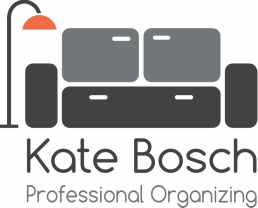

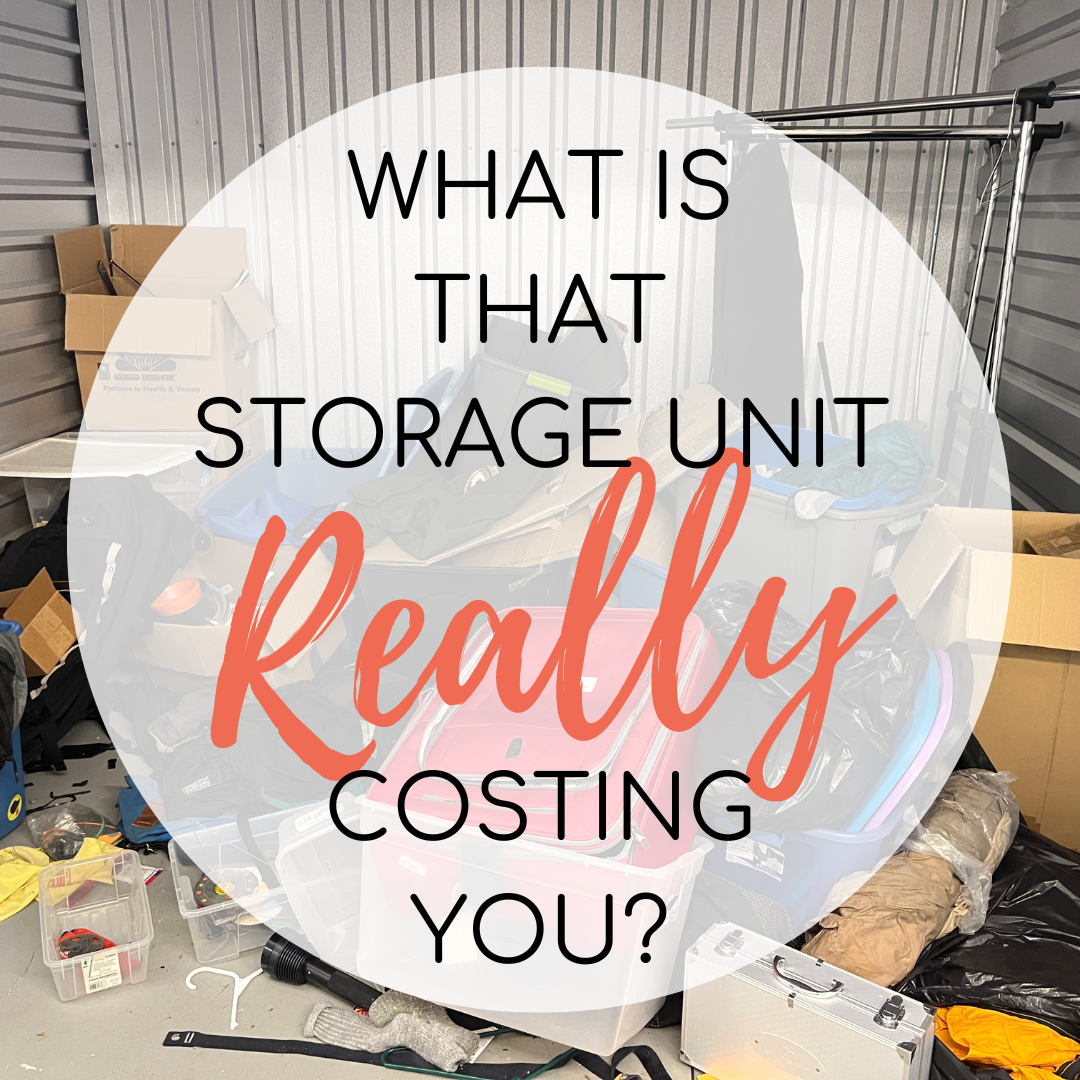
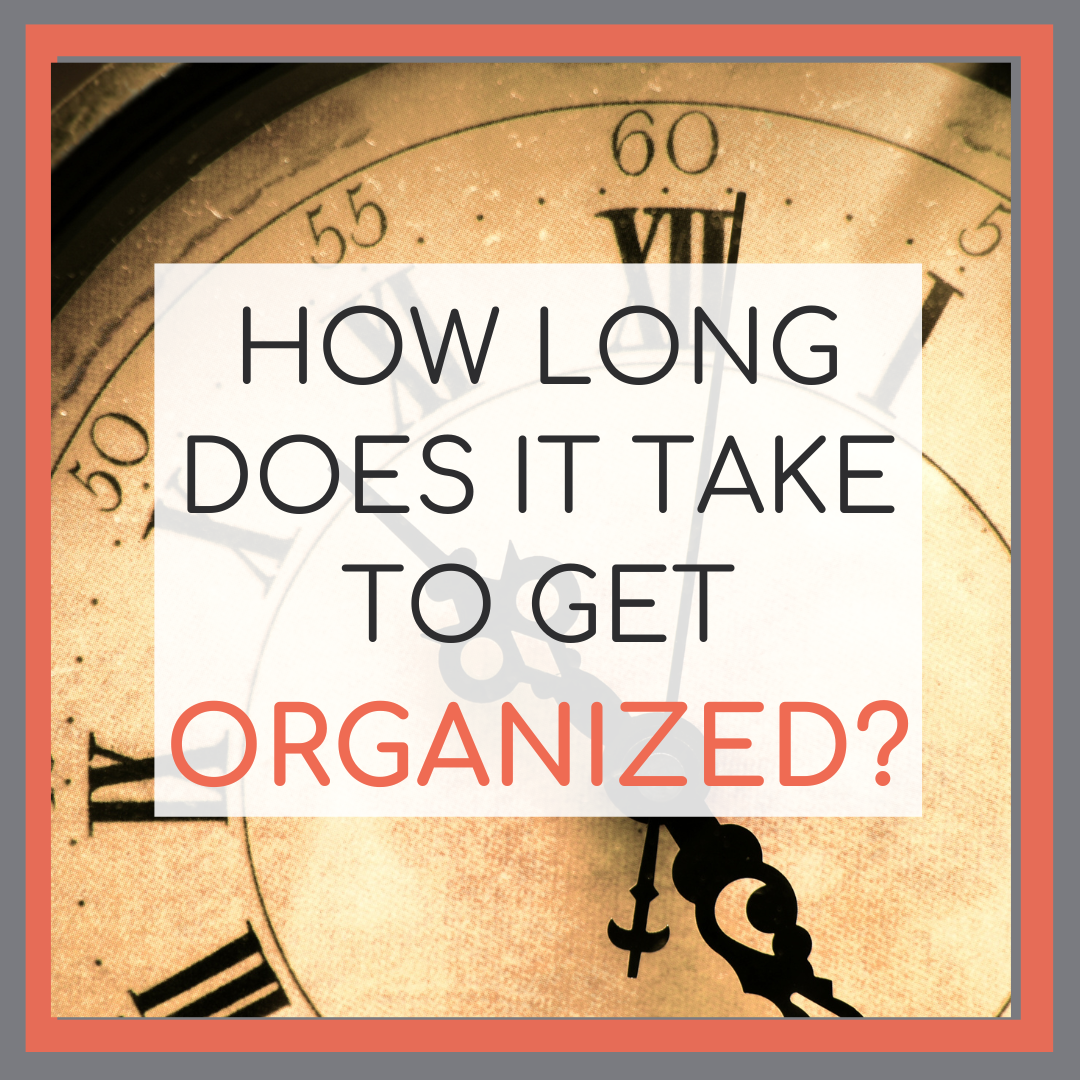
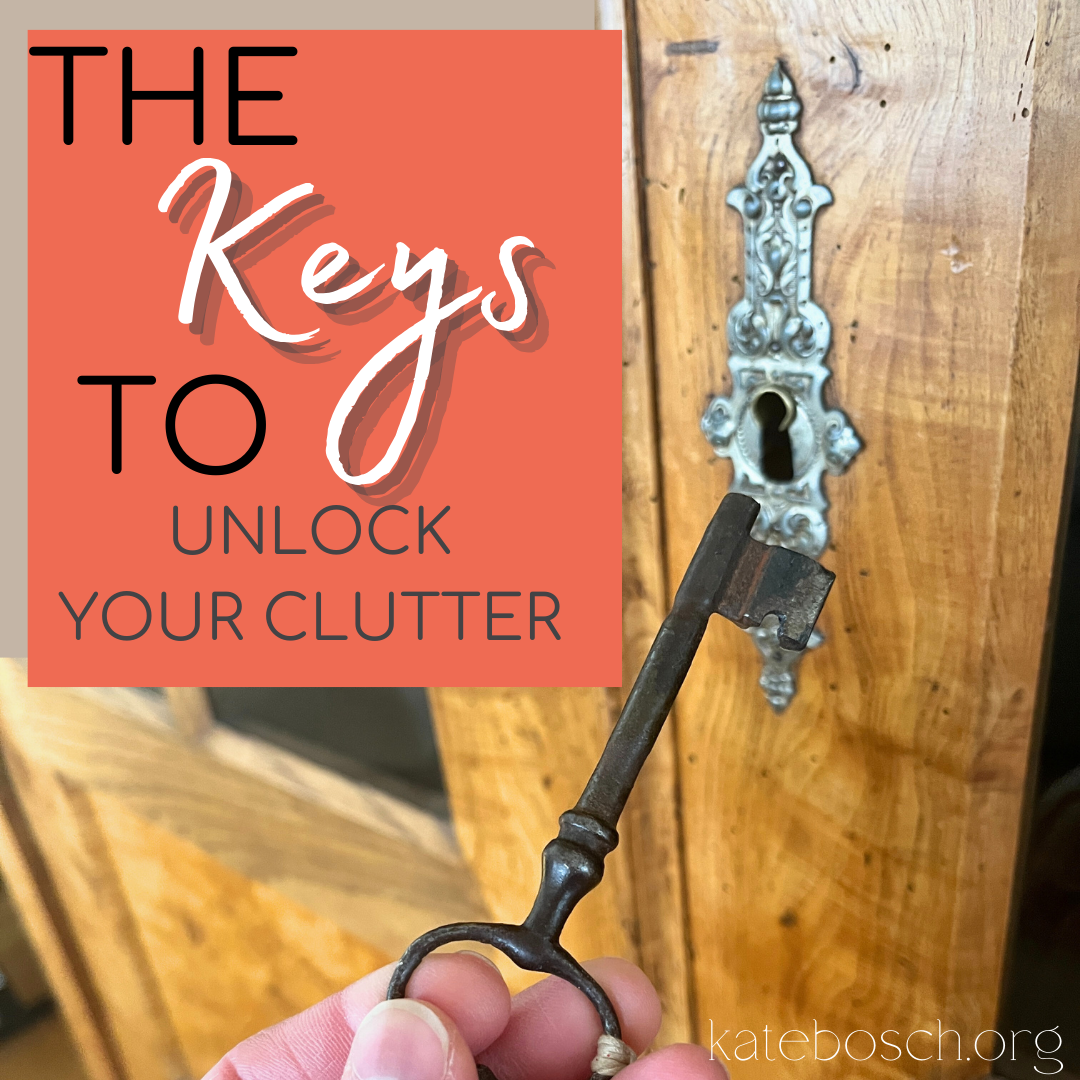
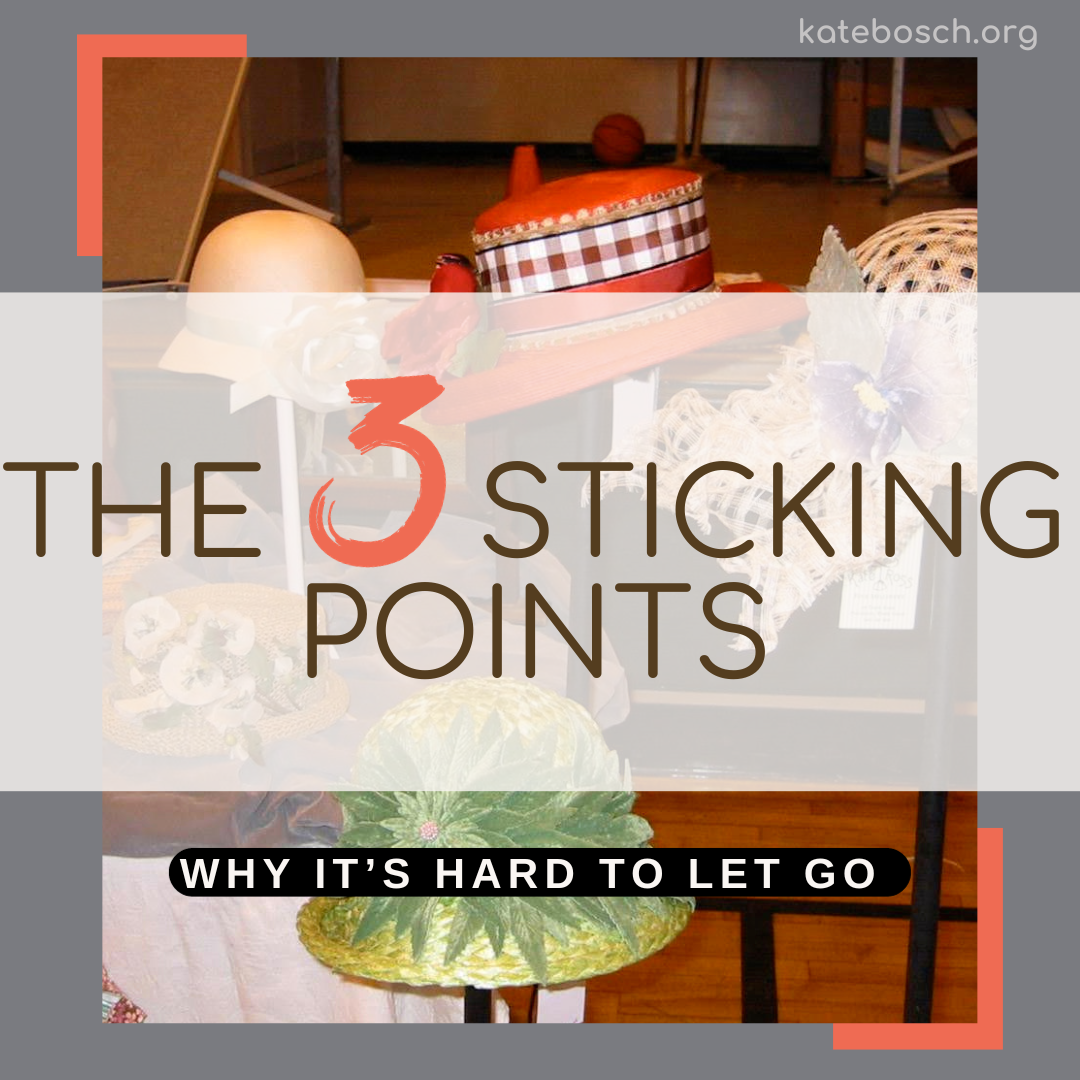
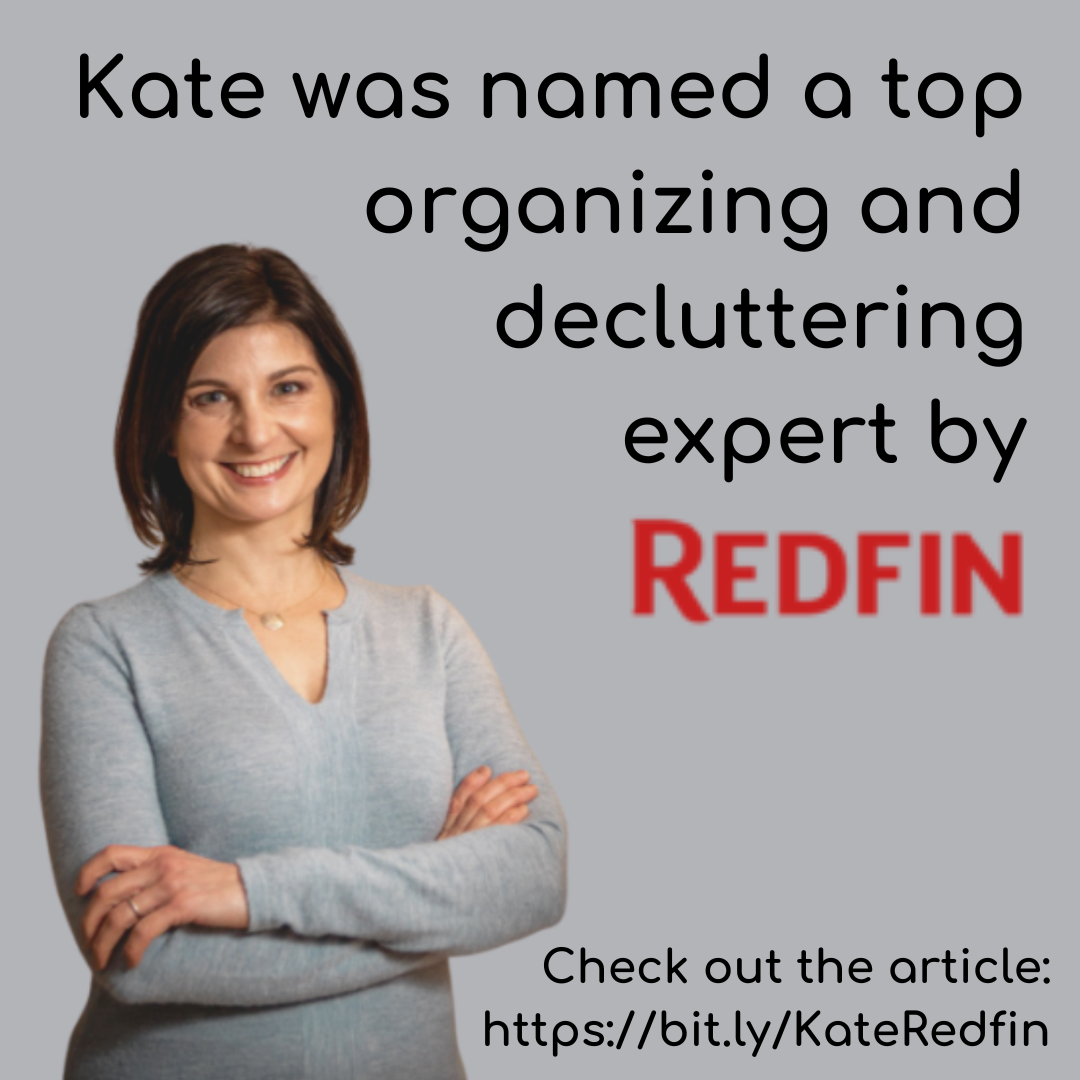
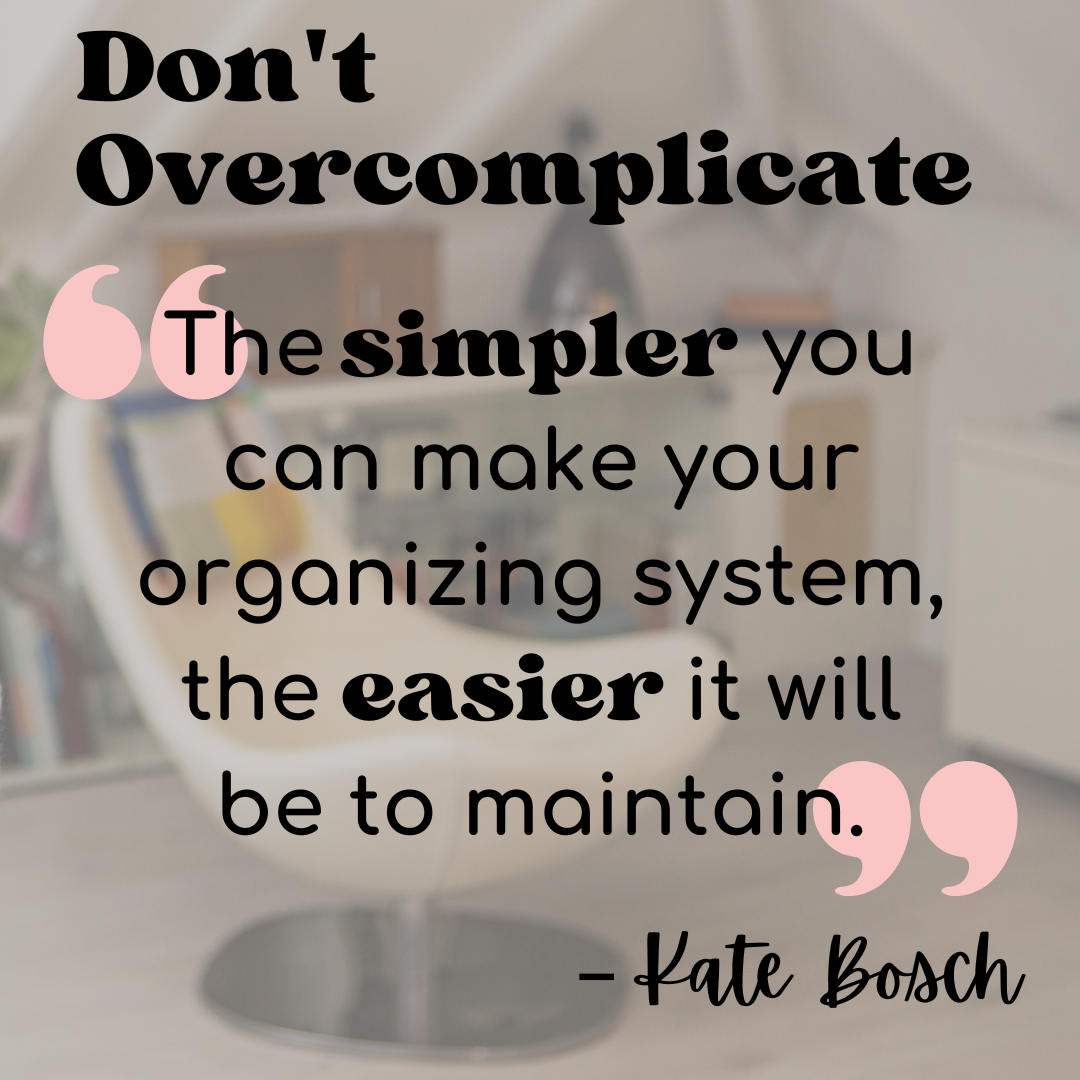
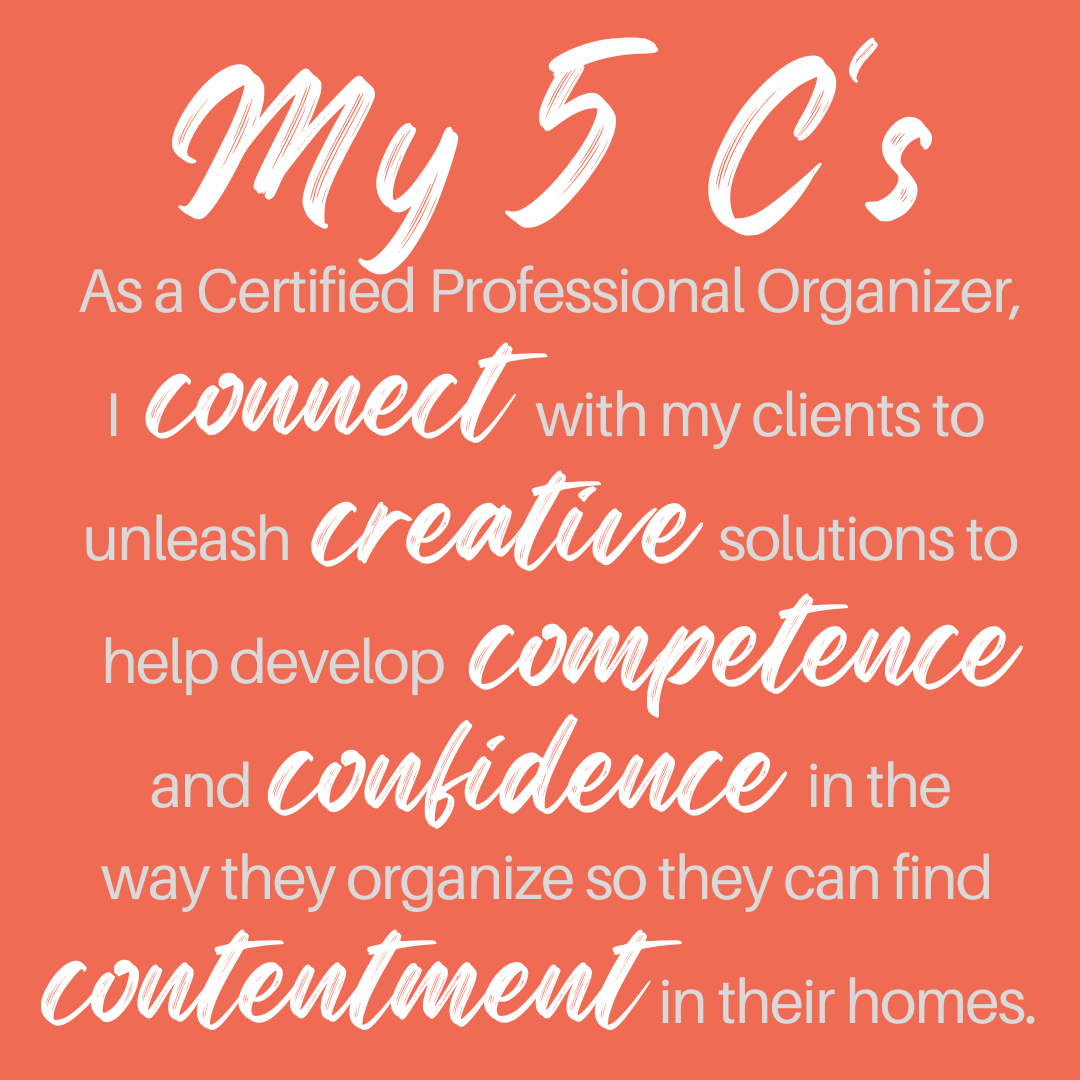
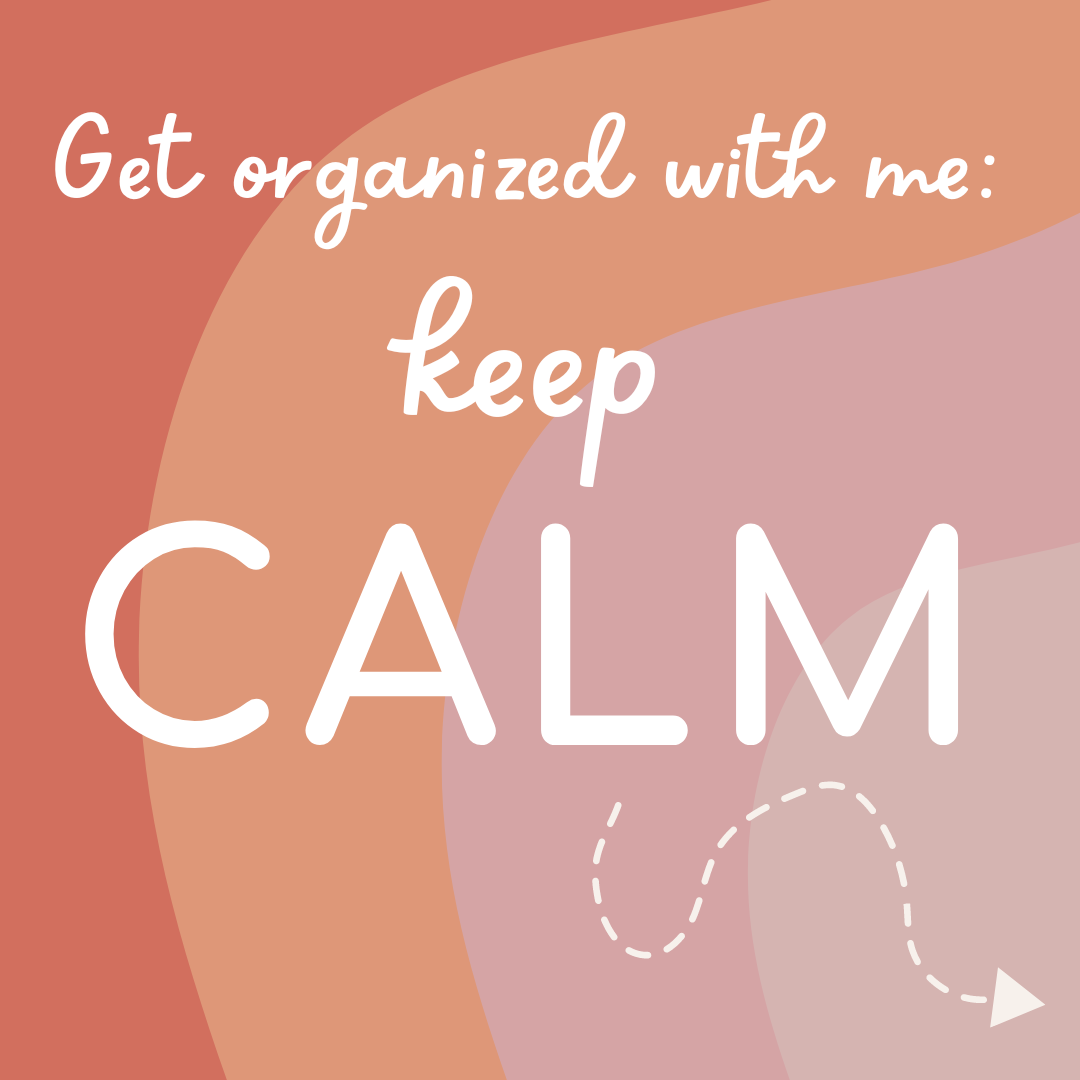

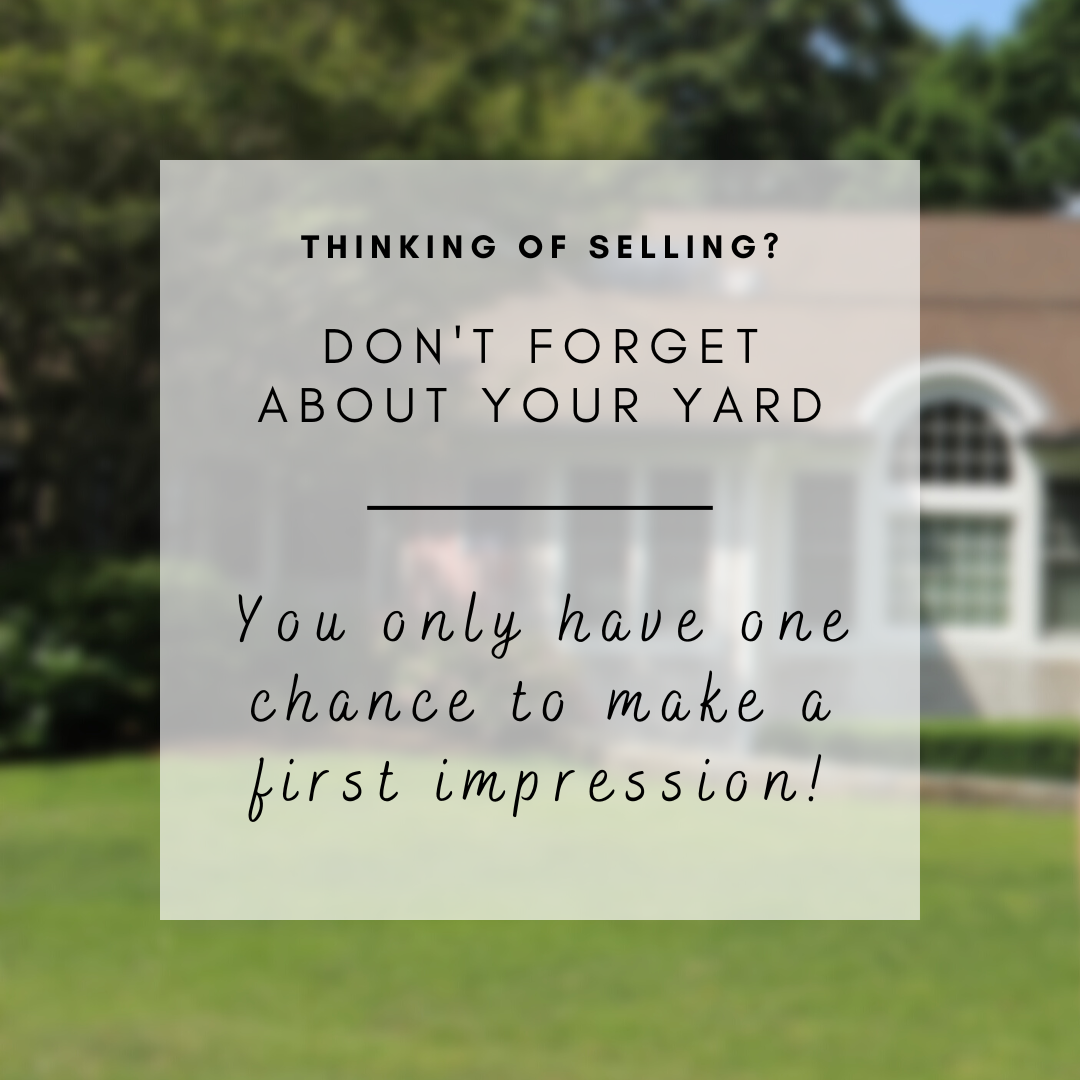
 RSS Feed
RSS Feed